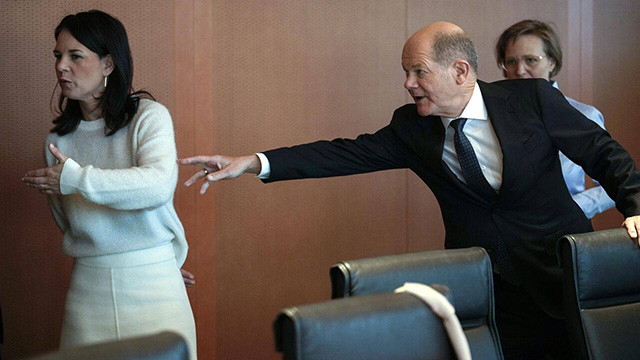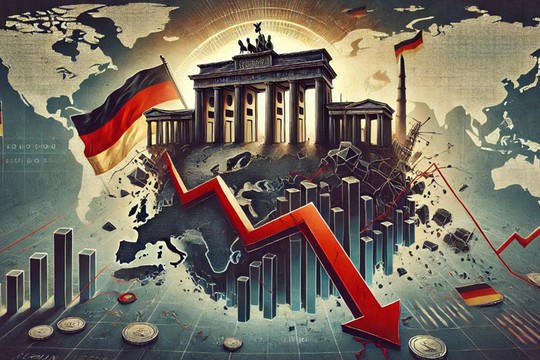Pic.: koha.mk
Germany is the hole at the heart of Europe, writes British ‘The Economist’ about Germany’s troubles with a touch of satisfaction.
It accounts for a quarter of the European Union’s output but it has been in recession for the past two years — and this year risks being the third. The perception that irregular migration is out of control has led to a surge in support for the xenophobic right, fragmenting German politics and causing paralysis in government and inaction in the EU. Its business model relied on manufacturing exports, especially to China, cheap gas from Russia and security provided by America. But that lies in ruins.
The election on February 23rd is the most significant in Europe for years. There is a likely winner; but what happens next is both hard to discern and critically important.
That winner-in-waiting is Friedrich Merz, the 69-year-old leader of the Christian Democratic Union (CDU). Together with its Bavarian sister party, the cdu is predicted to win some 30% of the vote, far more than any party but not nearly enough for a majority. Coalition-forming will take months.
But the biggest mystery surrounds Mr Merz himself. As his detractors gleefully point out, he has never been a minister, and indeed has never run anything larger than the cdu’s parliamentary caucus. His career in business was of the advisory and convening sort. Assuming he gets the top job, how will he transform a broken Germany? And since Europe functions best when it has strong Franco-German leadership, how will Mr Merz lead Europe when his French counterpart, Emmanuel Macron, is a busted flush?
Mr Merz seems, if not complacent, a little too relaxed, too prone to favour what sounds like incremental change over the radical shake-up that Germany and Europe need. He understands the concerns of business and promises a crusade against red tape, whether generated by Brussels or Berlin. He bluntly declares that Germany’s business model “is gone”.
All NATO members have a target to spend 2% of gdp on defence each year. Given the ‘threat from Russia’, 2% is no longer enough. After a ceasefire, Mr Trump is likely to want to reduce America’s commitment to NATO. The experts’ consensus is that 3.5% of gdp needs to be the new benchmark. Mr Merz declines to commit to this, and firmly discourages talk of a joint European bond to pay for more defence spending. But if the EU’s biggest and richest member is not leading on rearmament, no one except the Poles and Balts on the front lines of the next war will be ambitious either.
Too often, Mr Merz behaves as if the hard part will be to get elected. Yet governing will be much harder. To command his coalition and to carry through difficult reforms in a time of turmoil, he will need a mandate for sweeping change. So far, he has been too timid to ask for one.
 German Foreign Minister Annalena Baerbock does not want to listen to German Chancellor Scholz.
German Foreign Minister Annalena Baerbock does not want to listen to German Chancellor Scholz.
Photo: DPA
read more in our Telegram-channel https://t.me/The_International_Affairs

 11:19 17.02.2025 •
11:19 17.02.2025 •























